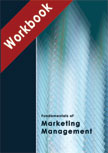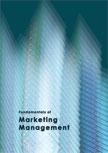Revival of Tata Nano: Can the World's Cheapest Car Maintain the Momentum?
|
|
ICMR HOME | Case Studies Collection
Case Details:
Case Code : MKTG286
Case Length :13 Pages
Period : 2010-2011
Pub Date : 2012
Teaching Note : Not Available
Organization :Tata Motors
Industry : Automotive
Countries : India
To download Revival of Tata Nano: Can the World's Cheapest Car Maintain the Momentum? case study
(Case Code: MKTG286) click on the button below
, and select the case from the list of available cases:


Price:
For delivery in electronic format: Rs. 500;
For delivery through courier (within India): Rs. 500+ Shipping & Handling Charges extra
» Marketing Case Studies
» Marketing Management Short Case Studies
» View Detailed Pricing Info
» How To Order This Case
» Business Case Studies
» Case Studies by Area
» Case Studies by Industry
» Case Studies by Company
Please note:
This case study was compiled from published sources, and is intended to be used as a basis for class discussion. It is not intended to illustrate either effective or ineffective handling of a management situation. Nor is it a primary information source.
Chat with us

Please leave your feedback

|
|




<< Previous
Background Note
The Tata Group, an Indian multinational conglomerate, was headquartered at Bombay House in India's financial capital, Mumbai. Founded in 1868, the company was in its fifth generation of family stewardship in the first decade of the new millennium. It was the largest private corporate group in India in terms of market capitalization and revenues. The total revenue of the Tata companies, taken together, was US$67.4 billion in 2009-10, with 57% coming from business outside India. The Tata companies employed around 395,000 people worldwide The Group's interests were spread over various industries such as communications and information technology, engineering, materials, services, energy, consumer products, and chemicals.
|

|
The Tata Group had operations in more than 80 countries across six continents and its companies exported products and services to 85 countries as of 2011.
The Tata Group consisted of 114 companies and subsidiaries in eight business sectors, 28 of which were public listed companies. Various charitable organizations held 65% ownership of Tata Sons, the key holding company of the other 114 Tata Group companies, Companies which formed a major part of the group included Tata Steel (including Tata Steel Europe), Tata Motors (including Jaguar and Land Rover), Tata Consultancy Services, Tata Technologies, Tata Tea (including Tetley), Tata Chemicals, Titan Industries, Tata Power, Tata Communications, Tata Sons, Tata Teleservices, and the Taj Hotels. The 2009 annual survey by the Reputation Institute ranked the Tata Group as the 11th most reputable company in the world. The survey included 600 global companies. The Tata Group was a pioneer in establishing and financing numerous quality research, educational, and cultural institutes in India. The Carnegie Medal of Philanthropy was awarded to the Group in 2007 in recognition of its long history of philanthropic activities.
Tata Motors Ltd., a part of the Tata Group, was earlier known as TELCO (TATA Engineering and Locomotive Company). It was India's largest automobile manufacturing company, with consolidated revenues of US$ 27 billion in 2010-11. It was the leader in commercial vehicles and among the top three in passenger vehicles in India...
Excerpts -
Next Page >>
|
|









